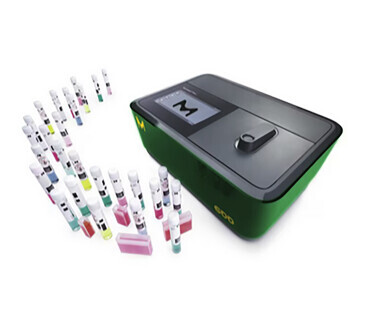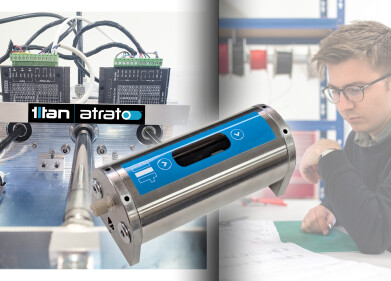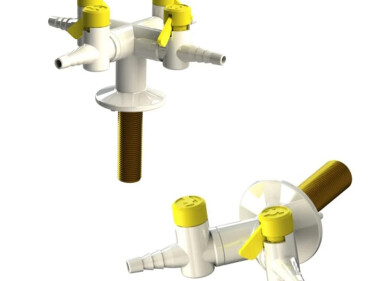Laboratory products
Powerful Water Testing for Process Water in Industries
Dec 03 2024
Chlorides, phosphates, silicates, and sulfates are a serious problem in the process water of power plants. Even trace levels of these contaminants can cause corrosion and scaling, leading to downtimes and expensive repairs. This makes regular process water testing essential for reliable operations. We make it easy.
In industries where water quality is paramount, regular process water testing is not just a regulatory requirement but a critical component of operational success. By leveraging advanced testing solutions, such as the Spectroquant® Prove 600 plus spectrophotometer, industries can detect contaminants like chlorides, phosphates, silicates, and sulfates with precision. This proactive approach not only safeguards equipment and processes but also enhances overall efficiency and reliability, reducing the risk of unexpected downtimes and costly repairs. Read how to test silicate with our instrument and test kits.
Process water quality is crucial to ensure the efficiency and safety of industrial operations. It often requires monitoring and testing to identify and manage contaminants that could affect product quality, equipment performance, or regulatory compliance. By regularly analyzing the chemicals present in water heating systems and process water, industries can proactively address potential issues, optimize performance, and maintain high-quality standards.
One of the primary benefits of process water testing is quality assurance. Regular testing helps identify harmful contaminants, including heavy metals and organic pollutants, ensuring that the water used in industrial processes meets stringent quality standards. This is particularly crucial in industries like pharmaceuticals and biotechnology, where maintaining water purity is vital for drug manufacturing and sterile preparations. Compliance with Good Manufacturing Practices (GMP) necessitates rigorous testing to prevent contamination and ensure product safety. The pharmaceutical industry requires extensive documentation and validation processes to demonstrate that all aspects of production, including water quality, meet regulatory standards. This includes maintaining records of water quality testing, treatment processes, and any deviations from established protocols. As the pharmaceutical industry faces increasing scrutiny regarding its environmental footprint, effective management of process water, including treatment and recycling, is becoming more important.
In addition to quality assurance, process water testing plays a significant role in preventing corrosion and scaling. Monitoring for corrosive substances and scaling agents, such as dissolved metals and hardness minerals, allows industries to implement effective water treatment measures. This proactive approach is crucial in preventing equipment damage and prolonging the lifespan of systems, particularly in sectors like power generation, where large volumes of water are utilized for cooling and steam generation. Moreover, testing facilitates the optimization of system efficiency. By managing inhibitors and additives, such as corrosion inhibitors and antiscalants, industries can maintain optimal chemical levels that enhance energy efficiency and improve heat transfer. This not only leads to cost savings but also ensures that processes operate smoothly and reliably.
Compliance with regulatory standards is another critical aspect of process water testing. Many industries face strict regulations regarding water quality, and regular testing ensures adherence to local guidelines, protecting public health and avoiding legal repercussions. Industries such as food and beverage manufacturing heavily rely on process water for ingredient preparation and cleaning. Regular testing helps prevent contamination, product quality issues and ensures compliance with food safety regulations. Compliance with these regulations is critical for avoiding legal issues and ensuring consumer safety.
Furthermore, the chemical manufacturing sector requires precise water quality control to ensure desired chemical reactions and product effectiveness. Regular testing allows for the monitoring of impurities that could lead to equipment failures, thereby optimizing process conditions and enhancing product quality.
Consistent process water testing contributes to safer, more efficient operations that are crucial for maintaining competitive advantage in today's industrial landscape. Stay in the clear with our Spectroquant Prove system.
Digital Edition
Lab Asia Dec 2025
December 2025
Chromatography Articles- Cutting-edge sample preparation tools help laboratories to stay ahead of the curveMass Spectrometry & Spectroscopy Articles- Unlocking the complexity of metabolomics: Pushi...
View all digital editions
Events
Jan 21 2026 Tokyo, Japan
Jan 28 2026 Tokyo, Japan
Jan 29 2026 New Delhi, India
Feb 07 2026 Boston, MA, USA
Asia Pharma Expo/Asia Lab Expo
Feb 12 2026 Dhaka, Bangladesh



















